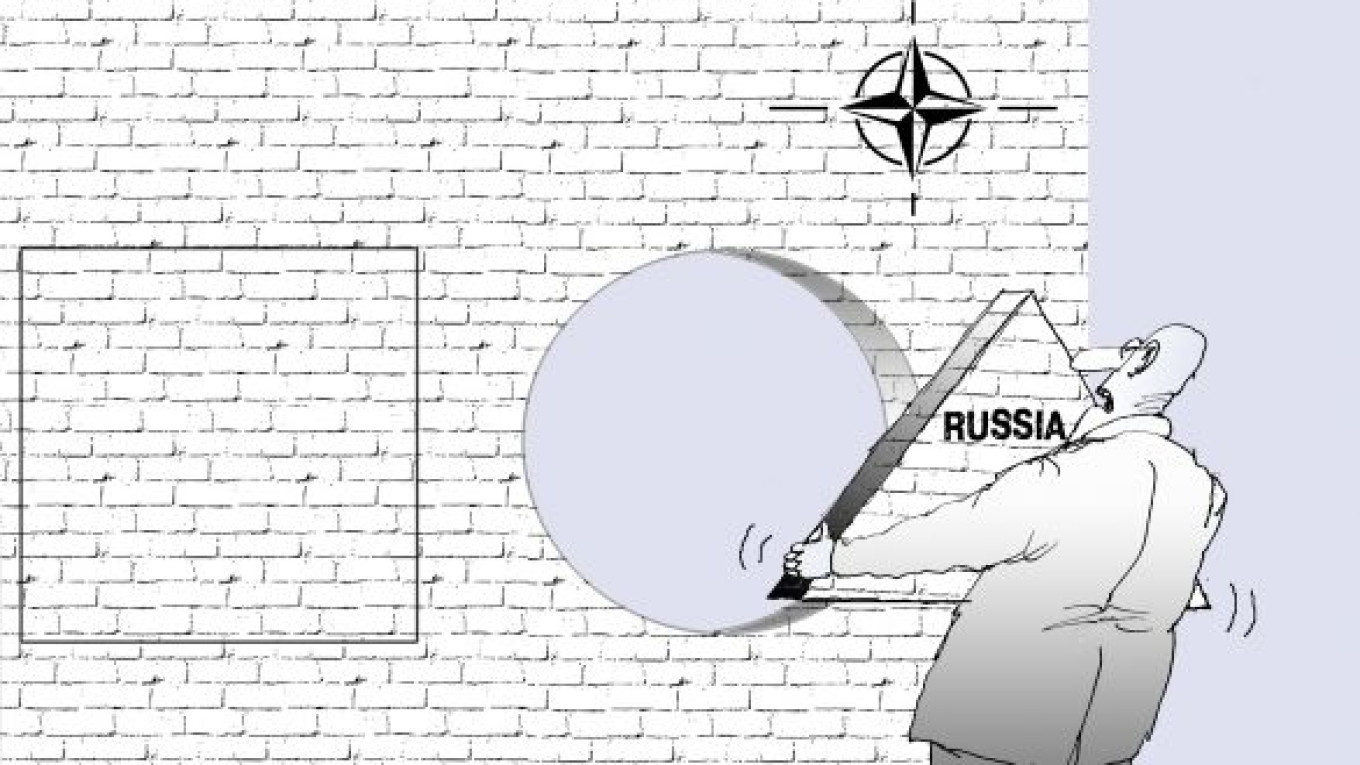On April 22, The Moscow Times published an article by NATO Secretary-General Anders Fogh Rasmussen titled “NATO’s Common European Roof” in which he proposed expanding the alliance’s missile defense system to include not only all of the member states, but Russia as well. Rasmussen states that the architecture of such a common missile defense “roof” should be created, maintained and used jointly and that its area of operation would stretch fr om Vancouver to Vladivostok.
At the same time, he acknowledged that there are certain “practical challenges” in developing a joint missile system and mentioned three main hurdles: the linking of sensitive technologies to create a joint missile defense system, ensuring its interoperability and the exchange of intelligence.
Responding to the question of the Danish Broadcasting Corporation on April 26 about the possibility of supporting Rasmussen’s proposal, President Dmitry Medvedev said Russia could only consider a “serious proposal.”
The question arises: Why does the West continue to hold the belief that Russia should become a partner in developing NATO and U.S. missile defense systems on its terms only?
Rasmussen apparently does not understand that Russia cannot participate in this project because it will mainly be aimed at undermining this country’s strategic forces. Any other position on Moscow’s part would lack elementary logic and common sense, especially given that the U.S. Nuclear Posture Review states, “The United States is therefore not prepared at the present time to adopt a universal policy that deterring nuclear attack is the sole purpose of nuclear weapons.”
What’s more, NATO countries and Russia will never lift the veil of secrecy that covers technical aspects of their missile defense system. There is one simple reason why the problem of declassification cannot be solved: Russia is not and does not plan to become a member of NATO. And under no circumstances would that alliance ever accept Russia into its ranks as a full-fledged member. NATO would never be able to share its most sensitive strategic secrets with the Kremlin.
Another insurmountable obstacle to the proposed NATO-Russian joint missile defense shield is the incompatibility of their radar and interceptor components. This problem was openly acknowledged by a missile defense overview approved by the Pentagon and published in the Ballistic Missile Defense Review in early February. That report states that it would be impossible for U.S. early warning radar stations to use intelligence gathered by similar Russian facilities because of their incompatibility.
My suspicion is that the idea for a joint NATO-Russian missile defense structure is being floated by Rasmussen, U.S. Secretary of State Hillary Clinton and others to draw the Russians into a plan to build a U.S. missile shield on a global scale as a “partner” — namely, to secure Russia’s support of a system that is designed to undermine its own national security.
There is another problem as well. The United States cannot attempt to neutralize a ballistic missile threat from a “rogue state” if it comes at the expense of Russia’s national security. The missile threat can only be eliminated by strengthening controls over the proliferation of nuclear materials and missile technology and by preparing a multilateral treaty between countries possessing missile defense capability. In the spirit of the 1972 Anti-Ballistic Missile Treaty, from which former U.S. President George W. Bush withdrew in 2002, this new treaty would permit the deployment of missile defense systems based on a very simple principle: No missile defense should undermine the strategic balance of power with other nations. In the absence of this guarantee, there is a real threat of provoking a destructive dual arms race — one in offensive weapons and the other in missile defense systems.
In addition, a global U.S. missile defense system could torpedo the New START agreement signed in early April. The Russian side rightfully included a clause in the treaty’s preamble that states the fundamental security link between offensive and defensive weapons. If the United States is determined to deploy a global missile defense system that upsets the balance of power, it may very well force Russia to withdraw from the treaty.
Now that the New START has been signed, Russia and the United States should begin negotiations on a new treaty to regulate and lim it missile defense deployment. Other important issues, such as the nonmilitarization of space and the reduction of tactical nuclear weapons, also need to be addressed in separate treaties. If the United States and Russia can sign agreements on all of these issues, this would strengthen global security for many decades to come.
Vladimir Kozin is chief of the foreign journalists' accreditation section of the Foreign Ministry’s press center. The opinions reflected in this comment are his own.
A Message from The Moscow Times:
Dear readers,
We are facing unprecedented challenges. Russia's Prosecutor General's Office has designated The Moscow Times as an "undesirable" organization, criminalizing our work and putting our staff at risk of prosecution. This follows our earlier unjust labeling as a "foreign agent."
These actions are direct attempts to silence independent journalism in Russia. The authorities claim our work "discredits the decisions of the Russian leadership." We see things differently: we strive to provide accurate, unbiased reporting on Russia.
We, the journalists of The Moscow Times, refuse to be silenced. But to continue our work, we need your help.
Your support, no matter how small, makes a world of difference. If you can, please support us monthly starting from just $2. It's quick to set up, and every contribution makes a significant impact.
By supporting The Moscow Times, you're defending open, independent journalism in the face of repression. Thank you for standing with us.
Remind me later.


